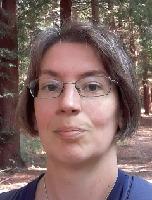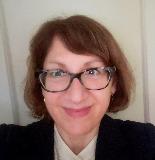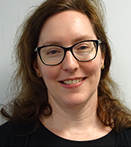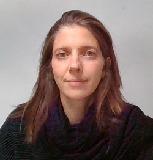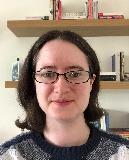Blog
Unless otherwise stated, content is shared under CC-BY-NC Licence
DCDC 2022 - The Future Landscape of Digital Archives
Yi-Ting Lin is a PhD student in Information Studies at the University of Glasgow. She recently attended DCDC 2022 with the support of the DPC Career Development Fund, which is funded by DPC Supporters.
Thanks to DPC's support, I attended the Discovering Collections, Discovering Communities (DCDC) conference for the first time last week (#DCDC22) and learnt loads of new development and strategies. In this blog post, I contextualise the content of what I learned with themes and highlight some keywords to track future research and development of practice.
As introduced on the DCDC 2022 official website, the five-day virtual conference (11th to 15th July 2022) provided a forum for cultural sectors and academia to exchange experience and knowledge. This allows cultural sectors to construct a common value and share vision for future practice to explore solutions for digital innovations. From the inspiring presentation and animated discussion in Q&A sessions, this year’s cultural sectors addressed a degree of concern over ethical issues, trainings for professionals and participants, digital innovation in archive management, and the challenge and outcome of participatory projects.
Working collaboratively
Helen Dafter is Archivist at The Postal Museum in the UK.
Background
The Postal Museum was recently involved in a project working with students from the Worcester Polytechnic Institute (WPI). The WPI is a private science technology orientated university based in Massachusetts, United States of America. The museum has a longstanding relationship with the WPI, past projects include developing an e learning product, and exploring the viability of a mobile app to showcase the museum’s stamp collection. This was the first project I had managed.
Celebrating a preservation milestone and reflecting on Portico’s journey with the scholarly publishing community
Stephanie Orphan is the Director of Publisher Relations and Content Preservation at Portico.
Portico recently passed a significant milestone–one that was beyond our imagination when the service was launched. We are happy to report that we are now preserving content from more than 1,000 publishers. At this writing, we are preserving ejournals for 717 publishers, ebooks for 366, and digital collections for 7; all in all, more than 2 billion files are preserved in the Portico archive. We are fortunate to also have the support of more than 1,000 academic and research libraries who participate in Portico and help us meet our mission.
Resolving Encoding Issues in a Spreadsheet received from Digital Collection donors: A Case Study from the National Library of Ireland
Conor Lynott is a Digital Intern at the National Library of Ireland.
The Problem We Faced
This blog post is an abbreviated version of a longer report that I wrote as part of my National Library of Ireland Digital Internship. This report was written as part of the wider effort to preserve the Census of the Heart project.
Census of the Heart was a project that was led by Mari Kennedy and Kathy Scott. This project was an alternative to the 2016 census and it aimed to capture the emotional state of the nation, rather than traditional data about the demographics of Ireland. The National Library of Ireland is proud to preserve this unique dataset as part of our ongoing commitment to preserving the digital memory of Ireland. The preservation of memory is a key part of the National Library of Ireland’s recently launched 2022-2026 Strategy – available here: https://www.nli.ie/en/reports-and-policy-documents.aspx
Learning, Developing and Building Those Competencies
Ruth Kusionowicz is the Digital Preservation Project Officer at East Sussex County Council.
I’ve worked in records and archive professions for the past 15 years, completing my Masters in Archive Administration 9 years ago. Throughout my career I’ve always had a keen interest in the challenge of managing and preserving digital records. I even wrote my dissertation on national approaches to web-archiving in the UK, US and Australia. With that interest also comes an acute awareness that things are always changing – whether it’s the technology, approaches, challenges or the teaching. So there’s a need to continuously update my learning and experience if I want to help tackle ‘the digital problem’.
My tips on how to develop, improve and stay in touch
There are many different ways to develop or enhance your knowledge, skills and experience. The first obvious one is training. For digital preservation I found the Novice to Know-How course invaluable. It built on my little existing (outdated) knowledge, gave me the detail where I needed it, and provided links to other resources where I didn’t. But its not just subject specific training that I’ve found helpful. Other courses, like the DPC’s Getting Started With Advocacy course, have developed me in areas that are key to being successful in my job. And completing a records management for M365 and SharePoint course highlighted important risks and issues I should be aware of, while giving me the confidence and language I need to raise concerns with IT about proposed implementations.
A Conversation about Open Access to Online Collections
Deborah Thorpe was the Education and Outreach Manager at the Digital Repository of Ireland (DRI) at the time of writing.
This blog explores different perspectives on open licences and looks at how the licences depositors select affect the use and reuse of digital content. It originally appeared on the Digital Repository of Ireland’s blog in July 2022.
An increasing number of organisations, including libraries, galleries, and museums, are choosing to provide open access to their online collections, with fewer and fewer restrictions on how they are used. In 2020, for instance, the Smithsonian Museum released 2.8 million images of its collections into an open access platform. Before that, in 2018, Birmingham Museums Trust took the decision to make medium-resolution images of its out-of-copyright collections freely available with no restrictions. The Rijksmuseum states ‘our collection is for everyone. That’s why the Rijksmuseum makes its digitised collections and metadata available in the highest quality. And we don’t ask for anything in return’. The museum’s Research Services department is also building a digital infrastructure for sustainable Research Data management, inspired by the FAIR principles of findability, accessibility, interoperability, and reusability. Where copyright and database rights apply to digital reproductions and data, the Rijksmuseum waives these rights by using the Creative Commons Zero (CC0) Public Domain Statement.
Benchmarking Access at National Archives of Australia
Rowena Loo is the Director, Digital Archives Innovation and Research at the National Archives of Australia.
Access – it’s the end goal of all digital preservation activity and the true test of our digital preservation efforts. After all, if no one’s going to access it, why preserve it? If it’s not technically possible to access it, how can we claim it’s been preserved? However, it’s all too easy to focus on the more immediate challenges of transfer, ingest and file format preservation, especially when broader public access can be limited due to statutory closure periods, or the sensitivity of the information involved.
While National Archives of Australia has been actively developing its digital archiving capability over many years, and had integrated access to digitised records into its public search engine, it was acknowledged that access to born-digital records had received less attention.
DPC RAM: Levelling up
Silvia Gallotti is an Archivist at the LSE Library.
The past
In 2019, my colleague Fabi Barticioti, LSE Digital Assets Manager, completed the DPC Rapid Assessment Model (RAM) to assess the status quo of LSE Library digital preservation. Fabi wrote a very useful blog post about this, where she also encourages colleagues to use this model.
At the time, the Library had only just acquired the DAMS and appointed a Digital Assets Manager. Based on digitised collections only, 6 out of 11 capabilities were scored at basic level and none at optimised level.
It is now my turn to give an update on where LSE Library is with digital preservation today.
Reflections on Imaging, Visualisation and Artificial Intelligence from the IS&T Archiving 2022 Conference
Gemma Evans is a Post-Doctoral Research Assistant on the National AI-Enabled Repository for Wales Project and attended IS&T Archiving 2022 on behalf of DPC member Aberystwyth University with support from the DPC’s Career Development Fund, which is funded by DPC Supporters.
The DPC Career Development Fund grant provided me with the opportunity to attend the recent Society for Imaging Science and Technology (IS&T) Archiving 2022 conference which took place virtually from 7-10 June 2022.[i] The theme of the conference was ‘State-of-the-art Imaging, Digitization, Preservation, and Access’ and included a wide range of panels covering themes such as computational analysis, art and imaging, visualisation, and new advancements in digitisation. The conference also offered the opportunity to view behind the scenes tours of imaging labs and cultural heritage institutions.
Preserving born-digital design and construction records: the #DPClinic
On Friday last week we held a #DPClinic session to highlight and celebrate the Technology Watch Report we made available to the wider community earlier this month. In this session, we invited Aliza Leventhal and Jody Thompson to discuss their report on Preserving Born-Digital Design and Construction Records with the community and answer any questions that emerged. We also wanted to use the opportunity to ask some questions of the attendees and find out their perspective on the topic.


















































































































































